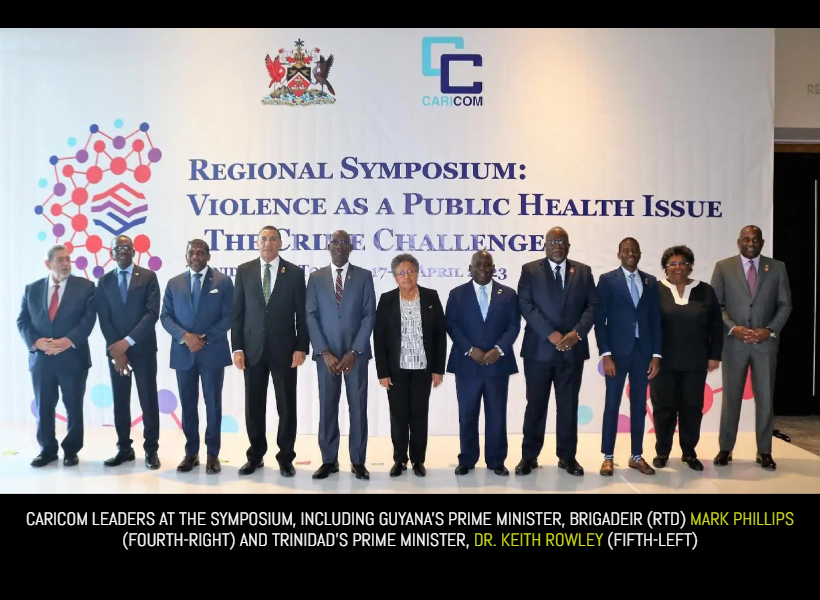Caribbean Community (CARICOM) leaders have taken a decisive step to ban the use of assault weapons by civilians in their respective nations. Trinidad and Tobago’s Prime Minister, Dr. Keith Rowley, made this announcement on Tuesday while delivering closing remarks at the Regional Symposium on Violence as a Public Health Issue.
Dr. Rowley expressed CARICOM’s intention to write to the United States President and his administration, urging a greater effort in preventing the manufacturers of “killing machines and projectiles” from profiting off the guns and ammunition that are wreaking havoc on the Caribbean’s people and society.
In his address, Dr. Rowley acknowledged that these small islands in the Caribbean cannot sustain the death rate and economic destruction brought about by the wanton use of arms and ammunition. He added that CARICOM leaders have also committed to working together to comprehensively overhaul their criminal justice systems, focusing on proactive management of prosecutions, sentencing, and the diversion of at-risk young people.
At the symposium, crime and violence were declared public health issues by the regional Heads of Government and it was also agreed that they would make efforts to strengthen the development of security as a fourth pillar of CARICOM. They have also issued a declaration, stating that the epidemic of crime and violence in the Caribbean, fueled by illegal guns and organized criminal gangs, remains a threat to democracy and the stability of societies within the region.
The high rate of illegal exportation of guns from the United States to the Caribbean Region is also a major concern, and the leaders have called on the US join the Caribbean in its “War on Guns”, just as the region embraced the US in its “War on Drugs” in the past.
CARICOM Secretary General, Dr. Carla Barnett, emphasized the need for a comprehensive approach, stating that “violence in our region is an epidemic and like any epidemic, effective strategies to combat the spread require data and research, as well as human and financial resources to allow timely implementation of solutions to address the root causes of crime and mitigate the devastating impact of crime and violence on our societies.”
The regional leaders have also committed to a public health approach that takes into account all sections of society and to apply evidence-based interventions.
In addition, they have agreed to strengthen regional forensic capabilities and collaboration among national forensic agencies, prepare regional model legislation to bring greater harmonization and efficiency to the development and revision of national laws, and ensure the immediate and effective implementation of the CARICOM Arrest Warrant Treaty.













